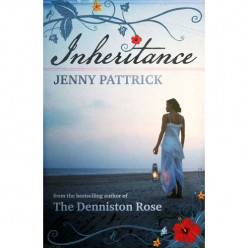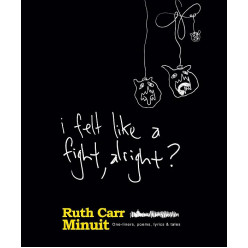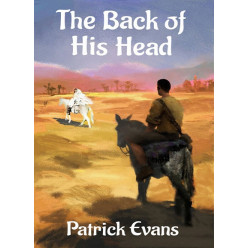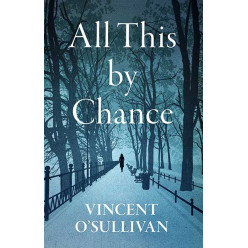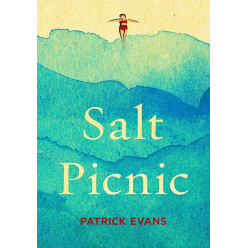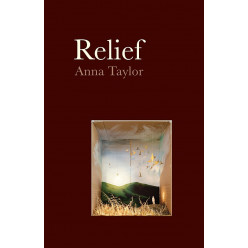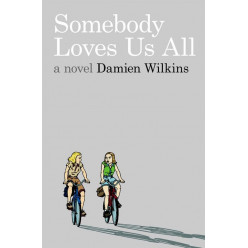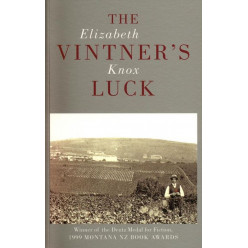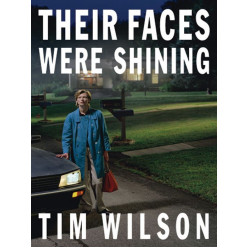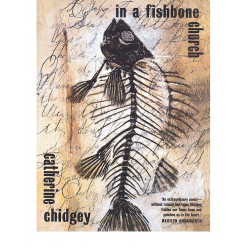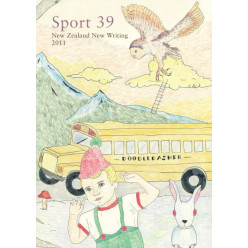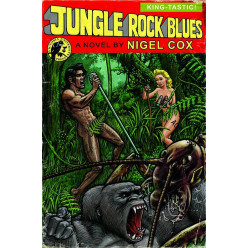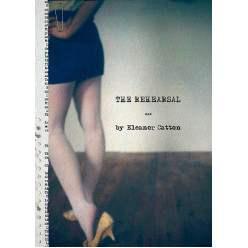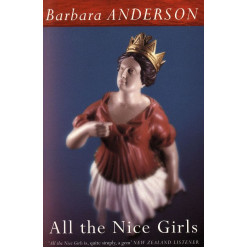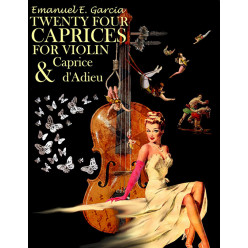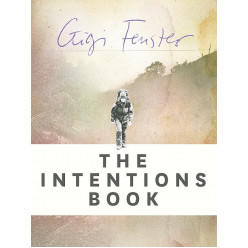Gifted
Immediate Download
Download this title immediately after purchase, and start reading straight away!
View Our Latest Ebooks
Explore our latest ebooks, catering to a wide range of reading tastes.
One day in 1955 the ‘father of New Zealand fiction’ finds a young woman on his doorstep. A writer herself, she has recently emerged from a lengthy spell in hospital and is looking for somewhere safe to live and write. Somewhat to his own surprise, not to mention discomfort, he takes her in. What happens behind that high Takapuna hedge in the ensuing year is the story told in this delightful and moving novel.
‘Gifted is a brilliant piece of ventriloquism. It's a book about the power of the imagination and the courage of gifted writers, but also – and much more simply – about the decency of ordinary people.’ – Bill Manhire
‘A magnificent re-imagining of a signal moment in our cultural history, this is both a novel of surpassing tenderness and a primer on creative writing. The ordinary is somehow made mysterious and alluring, while the puzzling business of the imagination becomes briefly – and ecstatically – illuminated. This is a rare and transforming reading experience.’ – Kate de Goldi
‘Patrick Evans is a stimulating and iconoclastic writer on our literature: he is also a richly talented playwright and novelist.’ – Owen Marshall
Patrick Evans is the author of two previous novels (Being Eaten Alive and Making It) and a number of plays. His other books include The Penguin History of New Zealand Literature (1990), The Long Forgetting: Postcolonial Literary Culture in New Zealand (2007), An Inward Sun: The Novels of Janet Frame (1971) and Janet Frame (1977). He lives in Christchurch and has taught New Zealand literature at the University of Canterbury since 1978.
From: Gifted, by Patrick Evans
Chapter 1
Sometimes I think I've made her up. I think she's a ghost from one of my earlier novels come back to haunt me, or a character from something I haven't got around to writing yet. And sometimes she seems like a ghost of her own, a phantasm called into being from her strange disturbing imaginary world. At other times, though, she's like one of those animated cartoon figures being drawn onscreen as you watch, moving and speaking while she's taking shape and the artist's hand works inside the frame, adding details or rubbing them out, a leg appearing here, a hand vanishing there.
And whenever I think that, I wonder if there's a way to rub her out myself, a way to make her disappear so there's no sign she ever turned up on the other side of my front hedge in the back seat of a pea-green Morris Minor one Saturday afternoon late in the summer of 1955, no sign that she ever came back a few days later and moved into the army hut in my back garden to my surprise and dismay, no sign that she lived and wrote there for the sixteen most extraordinary months of my life.
If I could do that, if I could rub her out like that—then the house would be mine again and free of the memory of her, it'd be no more than it was built for a few years before she came into my life, a place for me to live and work, somewhere to conduct my friendships and my other passions and to live my imaginary life in solitude. If I could rub her out I'd be able to go through my back door and across my tiny square of lawn to the hut, and open it to nothing more than the bed and the bench and the bare coat rack across the corner. And I'd have the garden back too, often neglected during her time with me but ready to be reclaimed and cared for as it used to be, ready to renew me, the loquat tree tapping its loaded branches at my windows to remind me it is still there, it is always there, the peach tree down the back showing its bright spring confetti once again, the apple trees and the nectarine behind them, and everywhere the bud upon the vine. Yet another summer: and myself untouched by her, not marked, not changed, not graced—
It seems always to have been in my life, this beachside section of land I live on, taken for granted like my tongue or my toes. When I was a child, our family home was ten miles away on the far, southern, side of the harbour, in a leafy suburb of bungalows east of the city. From the veranda of this wooden villa my father went at a half-trot to the tramcar at the bottom of the street every morning, and hence to the city as he used to call it, to wedge his ample posterior into the carver chair behind his solicitor's desk. From the same veranda my mother went each day to the shops up the road (butcher fruiterer draper and general store), or west to the church in whose rear hall she and other worthy middle-class trouts schemed charitable harassments of the poor. As for my tiny older brother and me, each weekday morning we trailed off to the east, creeping like snail unwillingly to school. And then, every Sunday, that endless ritual that would look so ridiculous if observed in a tribe of Hottentots: down on the knees and then up to sit, then down once more and up again, again and then yet again, until the harsh, indifferent Jehovah of my parents was placated wherever He hung his not inconsiderable Hat. Methodists, my parents, of a subsect now melted away but given then amongst other things to forcing grooves into the knees of its young: my brother and I used to compare our wounds as we stumbled back from the church to the Sunday mutton.
And yet all this predictability could be relieved any Friday summer evening when oh joy we would suddenly find ourselves being packed off in the tram to town, towards jetty ferry and wine-dark sea: epi oinopa ponton—well, just the harbour, in fact, but exciting enough in itself with the promise of its north-eastern corner, on the far shore, where another jetty and a brisk walk always brought us to the tangled half-acre my father had purchased as a rural investment, and to the little wooden dwelling he had built upon it: the family cottage, as my parents insisted on calling it, for all its modesty.
In front of this my father would stand, fumbling the hunter from his heaving paunch and the key ring out of a pocket:
Twenty-five minutes, he'd say, snapping the watchcase shut and dabbing at his red, glistening nape.
Then he'd fumble importantly with a padlock the size of a pensioner's reticule, until its jaws were parted and the door was opened and the little place was ours once more with its bosky, halitoxic puff of dry-rot and rat-droppings. Our beachside cottage—
Well, that is how my parents used to describe it to their friends: although, once the place had actually been sighted, the term tended to fall a little from use. Members of their church group, encouraged to take the fifteen-minute ferry trip across the harbour on a sunny summer Saturday afternoon and a further thirty-five in the bracing ozone of their slow, bovine stroll from the Bayswater jetty, paled, once delighted greetings had been exchanged, at the sight of the horrid little hutch that made our home-away-from-home. This was a jest, surely, surely the real beach cottage was somewhere nearby?—alas, no: tiny, primitive, even crude, this was it. Each time my recollections become too flattering, I rummage up the three or four snapshots that survive and remind myself how significantly different our holiday home was from the scoured, scrubbed domain in which, on the far side of the harbour, we lived our daily lives. A single room built up on shallow totara piles, the beachside cottage had a sort of porch at one end and a window in the side, a roof clad in corrugated iron and walls sheathed in weatherboards we tamed each year with yet another coat of Stockholm tar. For cooking, the driftwood-fired stove inside the porch, through whose roof it poked its metal chimney: for washing up, a system of buckets fed by the rainwater tank on the stand behind the hut: for evacuations, a noisome one-holer up against the farthest hedge, as near to being off the property as my parents could manage it. And, for all-over bodily hygiene: the snotgreen scrotumtightening sea, no more than a few furlongs distant.
This little wooden box I put to the torch several years ago, in a Viking funeral I knew was burning half my life away. For, as it was to turn out, I lived my first twenty adult years in it, mostly on my own but not (if I am to tell the truth the whole truth and nothing but the truth) entirely so. I started there a refugee, and have ended up somewhat better: richer, admittedly, in those things that cannot be seen weighed or counted than in those that can, but able, although with considerable difficulty, to scrape together the means of replacing, in due course, a mode of living that could still shock the more conventional of my friends who happened to drop by. Then, after eighteen years of living in my inherited and decaying little beachside cottage on the smell of a dry oil-rag, and with more conniving scheming and patience than I have ever managed in my life and not a little elbow grease of my own, I managed to shoo the last of the builder's gang off my property and take possession of the brand-new home they'd built for me—the house in which I sit now writing these very words, a dwelling modest enough, I must admit, and barely worthy of the name at merely twenty feet in one direction and the same mere twenty in the other, and but one each of bedroom outside door and fireplace: but, compared to the tiny, abandoned hovel whose exterior I was free to inspect (when once I'd shifted into my new cottage) through the clean, unflawed post-war glass of my brand-new linseed-smelling window, a veritable paradise on earth—earth which, to tell the truth, I'd been forced to sacrifice from my precious vegetable garden.
A flush toilet, a wireless radio built into the bookcase, running water, electric light bulbs—after twenty years of living in that terrible little family dogbox come rain come hail I had capitulated at last to Progress. It wasn't an easy decision, making the leap from the nineteenth century to the twentieth like that. And that is what I'd done. There was a New Zealand we've all forgotten and I felt that I was one of the last people who knew about it and cared about it: and I felt I'd left it behind, deserted and betrayed it, that night I abandoned the old hut and moved into the new place twenty feet away with its linseed-and-putty smell and a floor that thumped like a drum whenever I walked across it. Electric streetlights, even they had reached the beachside by then, they'd put one the other side of the macrocarpa hedge, and as I lay abed in my new house for the first time looking at its glow reflecting in strange places, on the half-filled bookshelf and bouncing up to the slope of the ceiling, it all felt so utterly wrong that I couldn't get to sleep. At two in the morning I half thought to go back outside to the old hut again. But I knew better, I understood that in carrying my few bits and pieces across the lawn from the old place to the new I was crossing a temporal Rubicon, that the hand of history had got hold of me and I could never go back.
And so it was that when one of my friends happened to mention he was trying to get rid of an army hut a few months later, it felt like that historical hand knocking on my door once again. What he referred to was the little sheds the army sold off to the public as surplus now the Hitler war was over. You could see them all over town and country, in suburban backyards schools camping grounds and what have you, perhaps twelve foot long and a Biblical seven in width, with a door at one end a window at the other and nothing much else in between. You could bed four to six men in each: a pleasant and diverting thought that kept me going as a friend and his boy helped me carry the disassembled sides of the new hut from his trailer through the gap in the hedge and onto the property. Then, once we were done, the two men abandoned me to my funerary rites, knowing me well enough to understand that that is what they would be.
And so I waited alone till dusk and its moths, passing the time by hosing down the hedges and the shrubs and the ground nearby: and then, as darkness closed in, I tossed a lit rag through the little building's door. There was a soft crump as the petrol ignited that I'd splashed about inside, and within ten seconds the place was lighting up like Guy Fawkes Night and I was backing off with heat on my face and arms. As I played the garden hose against the macrocarpa hedge and the little burning flakes floated up I tried to settle the emotion that I felt, to identify it and make it shapely. Fed by the aeons of Stockholm stored in the wood the fire spread, climbed, making a soft insistent roar as if some animal were being consumed. I tried to remember that day I landed there a refugee, and my father turning up to find me the following morning as he did, and my first night there six years later with my dear friend Harry, whom eventually you will meet. And I tried to remember the time before all this, when I was a child and had a family and a shape of life around me, for whatever it was worth.
All this fed into the moment when the board walls had burnt out and just the frame was there in outline, incandescent with fire, no longer a structure but an image, held briefly at the moment the material disappeared into the imaginary, the past disappeared into history: and then the whole thing fell in on itself and was gone. It was as if everything I knew and felt had been changed into something else. It was as if there was nothing left but what was new.
The next day, my friend and I reassembled the war surplus hut on the still-warm ashes with his son pitching in as well. It took two hours, fewer, and when we had finished it stood there sturdily as if to say the army had arrived, although in all truth its squared-off blank sides and the neat peaked roof above its single end door gave it more the look of a large dog kennel or perhaps of a very small church. It was thoroughly out of place, in other words an anachronism, and it took me a long time to accept it, to work it into my own private mythologies and narratives of being, my own personal romance. By the time I'd done so, many people had graced its graceless hearth. Young and old male and female artist and civilian normal and strange: all stayed there for brief or longer spells. And none of them for longer, and none of them more unusual, than the young woman I mentioned at my outset: the dweller in my army hut. Her name is Janet Frame.
She came into my life heralded by trumpets, or in fact by a car horn, two peremptory parps irrupting into my early Saturday afternoon snooze, followed ten or twenty seconds later by a rat-a-tat-tat! at the door. I'd got to the stage where I expected the odd visitor without welcoming them. Friends were another thing, friends knew to leave me alone till the afternoon as the sign by the gate instructed: No visitors till 1.00 p.m., please. Would that put them off? Not this one, it seemed. Still half-asleep from my post-lunch nap I was ripe for the plucking: and there she was before me as I opened the door, a plump-faced matron looking eagerly up at me, her eager vivid mouth already half-open.
Mister Sargeson? she breathed up at me. My standard nightmare visitor: age indistinct, medium to heavy tonnage, with a bosom like a bed bolster and her autograph book in her hand. I knew what came next: would I like to address her book club her church group her daughter's class at school?— Why no, madam, as it happens, I would not. I am merely a working stiff, as our American cousins put it, though I admit to finding the phrasing unfortunate. In the morning I work inside at my desk, and after a modest bite to eat at the kitchen counter you see behind me I spend the afternoon under the sun, working in my garden. At night I read and, occasionally and in a variety of ways, enjoy the company of others.
None of this of course was what I was actually saying to her, and, in all truth, it was taking me quite an effort to catch up to what it was that she was saying to me—
Your friend, I said, as if interested. Is she—?
I stepped down beside her onto the path, with its heat and its light.
Mm, yes, the woman said. I've got her out there in the car—
The name she mentioned was not unknown to me. Janet Frame, Janet Frame—I'd read something by someone called Janet Frame. But I was going to have to bluff this one out, by the look of it—
Yes, I heard my voice say. I'm bound to say I have read her—
But was it a single short story I was pretending to have read, or was I pretending to have read an entire book—?
Molly, the woman said her name was: I followed her up my path.
To exit 14 Esmonde Road one has to duck down through a hole in the hedge. Watching her do this from behind was not a sight for me—rather than skirts, for my own reasons I prefer women to wear what they nowadays call slacks. I can't explain this to you, and on this occasion I tried not even to think of it. I tried to concentrate instead on the torrent of words that came back to me over the woman's plump, heaving, scented shoulders.
And there, on the other side of the hedge, I had my first glimpse of Janet. There is no way to convey its colour to you, by the way, I mean the colour of the car. I am not used to the dreadful things themselves and have yet to accept them: at best I expect them to be if not black, then brown or fawn, or possibly even dappled—horse colours, at any rate. What kind of animal might have the colour of this monster I really don't know: but there it was, and, in its maw, brooding in silence, there, too, was the young woman in question, sitting in its back seat and made so anonymous by dark glasses and headscarf that there seemed hardly any point at all in my coming out to meet her. Especially since, as her friend rapped briskly at the window beside her, she made not the slightest sign that she intended to acknowledge us, and instead just sat there, staring fixedly through the windscreen as if something very important was attached to the end of the bonnet that she alone could see.
A couple more stiff raps, and Molly turned back to me:
No, she said. It's no good. She's very shy—
I can see that—
But so gifted—
I can see that, too—
As a rule, I am awkward around women like this. The fact that I had my hands clasped behind me tells me now that, at some level, I felt I was back with my mother. And of course I was terrified I was going to be asked my opinion of particular stories Janet had written.
Now Molly had begun to talk about her own family.
Really? I said, to the astonishing information she'd just given me. The whole family—?
We all write or paint. My husband paints on velvet—
You can get some remarkable effects on velvet, I said.
So you see, she said, we're very concerned to help her develop her talent—to get her back on her feet—
Ah. Back on her feet—so she'd been off them. That rang a bell, a tiny tinkle, in my memory. There'd been a setback of some sort, somewhere in the past. I had no idea what it involved—tuberculosis? An abortion? Piles?—but I definitely remembered something tragic, something dark.
I probed further. So, I said. Quite a long illness—?
Through her twenties, right through her twenties, the woman said. It's been her art that's kept her going—
And she's better now—?
We're hopeful. The doctors are hopeful. She's recovering from a certain kind of treatment she's undergone—
I wasn't getting very far with this. In fact, given the young woman's immobility, her refusal to shift weight to left or right by turning her head to talk to us or even acknowledge we were there in the first place, the incoming information was starting to point in one particular direction.
She can move around all right—?
Oh, yes—she's very cautious, of course, she takes it step by step—
Yes, well, you would, wouldn't you—?
She says she sometimes remembers it as a ring of fire—
Quite, I said. Quite—!
And that is how I acquired Miss Janet Frame, promisingwriter-in-chrysalis-form, genius-in-the-bud, and for an unspecified period of time my live-in house-or-hut-guest. Because, momentarily, I saw her as a fellow-sufferer, a comrade-in-arms in the unsleeping fight against the enemy that, like the Japanese at Singapore, attacks from behind—
Impulsively, emotionally, in an act of empathy for what the poor woman had been through and what faced her, I pronounced my own prison-sentence. With a sweep of an arm in the direction of the macrocarpa hedge so sun-blazed from this side, I said—
I've got an old army hut in there, she can use it whenever she wants to write—
—and that was it. After it was done, after the niceties had been completed and I had persuaded the pair of them to bugger off and leave me alone, when I was back on the other side of my hedge and with my hand around the handle of a Dutch hoe I proposed to spend the rest of the day with, I came to my senses. Not about what lay in store for me—I'd had half a dozen youngsters in the hut over the four or five years the cottage had been built and at least one crim, and was used to people going in and out. I liked having them there, in fact I loved the company as a rule and some of them even stayed for weeks at a time. No: I came to my senses about my misunderstanding. It was not that I suddenly realised the truth: just that, once alone again and away from the press of strange women, I began to acknowledge how unlikely it was that a young person—anyone—might be incarcerated throughout the best years of her life for the reason that had madly crossed what parts of my brain were still functioning at the time. There was something more to Miss Janet Frame than that. What was it, what had gone wrong for her? And, in the meantime, what was it that I had inflicted upon myself—?
The thing is, you see, she couldn't have come into my life at a worse time. I'd enjoyed a long run of luck, lighting one story off another like a chain smoker, puffing on for nearly twenty years till, suddenly, just before she turned up, the tobacco ran out, so to speak, along with the matches. By then, of course, my transformation was complete: I mean the process by which the stricken, broken youth my father left behind at the family beach cottage all those years ago was somehow assembled, with what seems now like inevitability, into—well, the man who fathered a nation's fiction. It sounds immodest to say it, I know, but that was the title bestowed upon me nonetheless, two or three years ago when I turned fifty: there I was, on the cover of the quarterly journal Hammer with my newish goatee beard, and there, running across the newish goatee beard, was the accolade itself. For what it is worth: I have no delusions about how widely my books are read in this modern-day Carthage in which we live. A writer? one of my neighbours said, when I started to get neighbours. We had you picked for a baker—you know, the hours you keep. They thought I was out all night tending the ovens!—a phrase, by the way, worthy of Janet herself: tending the ovens—
A year or two ago I published what was widely conceded to mark the pinnacle of my career so far, proof that the writing style I had pioneered was the Real McCoy, voice of the times we lived in, barbaric yawp of the common man, voice, no less, of a nation: a novel in two distinct parts, one playing cleverly against the other to achieve what a leading critic was convinced enough to declare a brilliant conversation, a dialogue (no less) between the divided selves of twentiethcentury man. Seven Heads of Grain, my novel was called: reviewers and critics were unanimous that it confirmed my pre-eminence, if my pre-eminence had needed proving. Outwardly, I went along with all this as if the achievement had been what I wanted to bring about and the status what I deserved. But inwardly, I was never quite so sure. Inwardly, I knew too well that, in truth, the book represented the desperate, last-minute throwing-together of two different projects I'd separately despaired of for some time. The title, with its hint of feast and then famine—seven heads of golden grain and then seven withered ones—seemed too much, once I had chosen it: an unfortunate prophecy for my very self. As a writer I had prospered for rather more than seven years; would I now have just as many years of dearth?
And everything did, indeed, stop. It was the strangest experience I'd had, what every artist fears most, perhaps even more than death. I was nearly fifty and I had nothing left to say. Friends congratulated me on Seven Heads, I got a letter from a lecturer in English at a university college deep to the south, then another from closer to hand. I read the handwriting and I read the type, I accepted the handshakes and smiled and nodded with a face like glass. Oh, several irons in the fire, you know how it is, I'd say, whenever they asked me what was coming next. Always busy. But there was nothing. Each morning I got up at six as usual and did my prefatory business, and then at eight settled into my hoop-backed chair as I'd done every weekday morning for nearly twenty years: and each time I settled down to my old Imperial, the machine stared back, its sheet of paper lolling out at me like an urchin's cheeky tongue. England expects that every man will do his duty, Able was I ere I saw Elba, Every good boy deserves favour: and when these forlorn sentences had been typed again a few times it seemed I was done for the day.
At moments like this I'd be reminded that John Calvin had not lost his singular capacity to manifest beside me. I'd lurch up desperately from the desk, push past his shade and fling out into a garden made foreign to me by the fact that as a rule I hardly ever saw it between eight in the morning and one in the afternoon: a garden disarrayed, blown apart from its original order and purpose by the ill wind of artistic mortality. Down at the fence-line I'd stare wildly at my bulging compost boxes, at their rotting vegetation, the biscuit-coloured foliage, the wreaths of blackened seaweed, the eggshells and lemon peel and tealeaves I'd flung the night before. Was it in there, is this where life came from? And off I'd go sack in hand to the mudflats and the mangroves at the end of the road, looking for whatever more I could get together to make life start happening again, sea lettuce dead fish driftwood for the fire: an elderly codger to the outside observer, a tattered coat upon a stick, with no distinguishing marks upon him save his evident failure to make headway in life.
Harry, you see, has been gone for some time. My on-again off-again come-again mate, met (make of this what you will) in my Christological year but also in what might be termed the most casual of circumstances (not to mention at the dead of night; though as far as details are concerned I think I'll leave it at that for the time being). Not the first such thus met, either, not by any manner or means, and not the best favoured in the more obvious of ways; but, without the slightest doubt, in all the succession of Bills and Dans and Daves and Toms met and matched and marched off again during that prolific and generous period of my later youth, the one who seized upon me in some complicated way I can (of course) never quite understand and which has never quite let go of me since. What to make of it?—that moment when the eye settles on some gnarled old brute and never leaves him again (I can see him in my mind right now, as I write this, like a private snapshot), and the heart gives its old familiar bounce in its birdcage of ribs? I'd experienced it before, that particular combination, but not the growing realisation, after his first visit and then his second, that something was settling itself between us far more complex than the usual run of things.
I'd already begun to assemble my array of old codgers at that stage of my life, even before I came to realise that that was what I was doing. They lived in huts and lean-to shacks all over the countryside, mementoes of an earlier time when the land was still being broken in and you could live rough and live single, getting through with odd jobs on farms or the edge of townships, shooting rabbit and possum and the occasional farmer's sheep. Some of them had come back from the big war, the first one, the one that had put paid to the times they lived in, put paid to an entire century: and they were the ones who kept away, they ran off whenever I hove to with my bag of produce—cabbages and carrots and what have you—that I'd leave by their door, hoping for the best, hoping that in due course they would relent. In the fallen flesh of their bodies I could relish the vestiges of their younger selves made beautiful by age—refined, matured, sweetened. In these older men there was often a strange, special ripeness. I hope you will try to understand what I mean.
For a long time that was how I wished to be, to live the way they did and, when I wrote, to write their world for them, to put their lives into words. I kept on, and after a while I got some of their stories out of them, with some I even ended up a sort of mate—as I did with old Solomon, my fisherman friend who lived forty miles up the coast and whom I visited regularly for many years, as I will tell. Theirs was the world I would eventually burn up in the family hut.
It was long before that moment that Harry came along. How can I explain him to you? Harry never failed you: never failed to disappoint. Put him in front of you and I would see the dismay on your face. Is this all? you'd say or think when you saw him: just any old bloke you might find on any tram, or standing at the bar of the Mon Desir with his hat set back on his head and one foot up on the brass of the foot-rail, eyes squinting in the drift of smoke from the rollie in his mouth: is this the man you said you'd give everything for, the man you said completes you? Well, as it happens, it is: but I see that I can explain him to you only by explaining other things, by looking away from him in order to show him to you more clearly. For Harry was made up of a hundred other people, Harry was the accumulation of a life's work. Harry was a sum.
My very first Harry, then—not ur-Harry, you understand, since something prior to, something originating Harry is inconceivable: Harry was Harry. But call the youth in the following account a version of Harry if you like. No need for any names, or for any particular details of his provenance.
Let me take you back to the Easter Bible camp I used to attend each year of my childhood and my youth. We studied in groups, nine or ten of us, each with an older boy to act as leader. Our spiritual guide at this time I now remember was perhaps sixteen or seventeen to my thirteen or twelve. We followed him around all day, dogs to his god. Of us all, I remember, I was the most devoted besotted infatuated and craven. I was pre-pubescent, I think (we got that sort of thing over and done with rather later in those days): but then sex had nothing to do with it, at least not sex of the obvious gasping rutting sort. Of the other sort, the kind I understand now, the kind that is in my garden as I write, the kind I grew my garden for—looking back now that I have learned to see it, that kind of sex was everywhere that day.
Here we were, then, gathered in front of him in the shade of a tree at noon. Forgiveness, I remember him saying, as he leaned forward into the semi-circle of earnest precarious bare-kneed youths disposed on the grass around him, each one tender as a pushed peach, as the poet says. What does Matthew have to tell us about forgiveness? the young god asked. Behind him, beyond the tree, the grass gentled down to the sand the beach the surf the sea, as on an island. That is how I remember it. Year after year we came to this cove twenty or thirty miles north of the city; the uncomplicated landscape rolled away from us north and south. The voice of Royston—there, I've let a name slip after all: though we called this particular youth, appropriately for a young monarch, Roy—the voice of Roy turned it into something else, something even better.
Forgiveness has to be immediate, one of the kids piped up; not me, because in the presence of this young god this young Christ I was struck dumb. Were there twelve of us at his feet?—I knew not: only that I couldn't get enough of him. And now here came his parable. I'd heard it already that morning on the edge of another, earlier group: the story of the woman whose husband was struck dead by a flying golf ball on the ninth fairway. I knew the words by heart. I watched the movement of his chiselled lips the whites of his evenly spaced teeth the glans-coloured flutter of his tongue: She forgave him straight away. Again the pause, again the look to left and right. And, here it came once more: She forgave him straight away. His sleeves rolled high to his shoulders, tightly, sailor-style: from their cloth, under the slight salt bleach upon his skin, a vein ran precisely perfectly pleasingly enticingly down the exact front of either arm, to reticulate in the mystery of his wrists. I couldn't turn my gaze from them.
Who—?
Ah: but now Scones has spoken up. Our Doubting Thomas: charity in action, one of the handful of boys from broken homes who'd been given the chance to get away and better themselves for a week or two in the company of the children of the well-to-do. Rubbish, we secretly thought them in our mercy, and pitiable too: but of them all every last one of us agreed that Scones was by far the farthest fallen. I remember the general horror in the camp the first time his bladder and then his bowel betrayed him, the sound of his terrified unhunh, the dread-filled whimper we learned to anticipate as the grace-note of each new disaster. And why Scones?—because those are what he'd promise us if we didn't tell the pastor or his minions that his body had let him down yet again, if we didn't betray him to the hellish middle-aged bitch who was the matron at the camp:
Don't tell them I shit meself and I'll bring yous all some scones—
Now, though, Roy is leaning earnestly towards him:
The woman whose husband had just been killed, he murmurs, his angel's face gentle with forgiveness.
But what she forgive him for—?
She forgave him for killing him—
But if she killed him, then he'd be dead—
A general shifting and stretching of limbs in the grass, someone whispering a word to someone else: a spell was being broken. Roy leans forward to his Doubting Scone again, his face lambent with patience—with forgiveness its very self:
There are three people—
He is holding up that number of fingers in what looks like a slightly obscene gesture:
A woman and two men—
It sounds like the start of a dirty joke, There was an Englishman an Irishman and a Scotsman—
Three—?
Scones screws up his eye at him—making the most, I suppose, of a muscle that still works. It's forty years ago, but I can see him now with his hand up like a salute to shade his brow, his left eye wrinkled in foggy disbelief, his fallen flyblown face radiating porcine agnosticism. I remember, too, the smell of ammonia and the ghastly yellow peril from which I sprang away as it pursued me across the bench seat I shared with him that first morning at camp, and I remember myself rearing up and betraying him to the authorities as fast as I could, raising the alarm, dumping him in the cactus, making damn' sure no one confused him with me and to hell with his scones—
Now if Janet were writing this we would already be long past the point at which we discovered that Scones c'est moi mon sembable mon frère. But I was a child and full of children's natural evil, utterly devoid of the compassion empathy insight and what have you that she managed to accumulate in her writing. I look back at my young self now: j'accuse. Let's just say it took me rather longer to rise above my animal status. For, of course—you've guessed it—he it is who was my first Harry, and the young messiah my first great disappointment. Beautiful, yes, young Royston, like some induplicable ideal I was to glimpse in bits and pieces over forty years, in this man's colouring, that man's voice, someone else's teeth or mouth or wrist or hand: or in a gesture, like the funny quick double nod my old fisherman cobber Solomon gives whenever he has found a new way to respond to a question by saying nothing at all. Royston had that, and this, and the other thing, too: and it all added up, I came to realise, to nothing very much at all. His godliness had swallowed him whole, his Bible had snapped shut on him, foreclosing his life, entombing him young, and a couple of years later he melted away overseas on missionary work that (for all I know) still drearily consumes him in some godforsaken jungle somewhere in the world. In the years since, down here on the ground, I've kept on meeting bits and pieces of him walking around in other, lesser people, busily sinning.
And Harry—my on-again-off-again present-day Harry? Well. There was a moment—in the time when he was coming to grow on me, when it was slowly becoming apparent that here was someone arrived in my life who made all others seem unnecessary—there was a moment when Harry caught my eye. There'd been no particular intimacy, as I recall it, we were in the ancient hut together fully clothed and I was letting him have my considered opinion on some issue of the day, things weren't bloody right and no one was doing anything about it, that sort of thing. And I looked across to where he was sitting and where the sunlight fell in through the window and upon the bed, and saw his arm was held up against it, and saw him wrinkle up his eye at me. That's all. That's all—? Well, quite enough, as it happened. When the humour is upon us we are as strangers to ourselves and know not what we do. The heart has its reasons, as the Duchess of Windsor's publishers recently had her tell us, and of which (to bring attention back properly to the equally incomparable Blaise Pascal) reason knows nothing at all. He was looking at me straight, Harry, just as his sad, incontinent prototype had gazed up hard at our Bible class leader many years before.
And I did not fail him as I (and, indeed, in the end, young Royston) had once failed poor doomed Scones. On Harry's used, marked, lived-in body I had already seen, in the throat and the set of the shoulders, and more than in these in the fall of the arms and the trace down the front of each of that hidden cord of vein that breaks in the wrist, the ghost of the young, impossible god. But it was in his eye that I saw everything else, all those things that made him human: his frailty, his need, his ignorance, his (yes) incontinence; and as well as these all the things he had slowly built on top of them ever since in order to survive and get by: his self-sufficiency, his self-containment, his readily available unavailability. Here I am, his winking gaze seemed to say. All a bit of a joke, really, in' it? Gunner join in—?
That was all, but it was quite enough to cleave me to him body and soul for the rest of my days, and to enter on a bond that no one understands, my closest friends, not one of them, to this day. As far as I'm concerned, Harry is free to come and go whenever he likes, and come and go he has done for nineteen years, turning up without warning or with little more than a scribbled letter-card a week before, and setting off again in due course with as little notice given. Out of the blue, a rap on the door jamb: and for the next few weeks or months he is with me, an affable, laconic, accepted presence in my life once more, someone to step past or over in my tiny fetid original cabin as I folded my bed or swept the floor, or, later in the day, crawled beneath his cot to slide the evening meal into the cooker. And someone to sit there after dinner as I scrubbed at pots and dishes or tried to write or read, someone set up in his cot with ancient gig-lamp, specs on his nose and a racing mag gripped between his earthy, earthly paws.
Best of all, though, was when neither of us did those things and I'd worked on him a bit to get him going: and then here they came once more, in that gravel-filled smoked and pickled voice of his: the stories of his life. The bomb that blew up the brothel in Cairo (ten men killed in action): the billet where the horse had stuck its head in the window and eaten up his breakfast in front of him (true dinks, Frank, right under m'nose): the fellow who'd been shot through the cheeks while sucking an orange—sometimes it was a lemon—and been left with no more damage than a pair of dimples, one on either side (and did the girls like him, Frank, he couldn't keep 'em off him after that): another sniper-shot that had parted someone's hair right down the middle, front to back (God's truth he threw away his comb): the erotic dancer in Alexandria who knotted her endowments for the young troops as part of her act (wouldn't want to get hitched to her): and so on. And then the racing stories, of nags dosed and hobbled, even (he insisted) painted an alternative hue in order to qualify for a lesser race (had a good finish); of the cup-winner they'd had to hack to death with axes when it went berserk on a ferry (It was her or us, what choice'd we got?). And so on into the night, all night through sometimes if I could keep him going. It was as if a favourite fictional character had come to life, had walked in the door and taken over—my own gnarled knobbled tobacco-scented Scheherazade. I couldn't get enough of him. He completed me. He completed my idea of myself.
And then, each time, in due course, at the conclusion of the unfolding of some private, inner process I had no access to and which was probably closer to what passes through the mind of a godwit or a turnstone when it decides that today is the day to leave, he would pack up his swag and go. He usually slipped his moorings when I was out so that he could avoid the awkward rituals of departure, which meant that I would come back home in the usual way and suddenly find 14 Esmonde Road minus Harry Doyle. Sometimes I'd have a premonition as I ducked through the gap in the hedge and crunched onto the crushed shells of the path, my rucksack heavy with the makings of a meal I'd expected to put together and share with him: and instead I would find myself enduring a cheerless evening alone at the kitchen counter spooning the food up in lumps while all around me the little dwelling cried out to me the loss of Harry. There'd be the familiar imprint on the bed beneath the window (or at least I'd think I could see it there, as on the Shroud of Turin), and the newspapers and racing mags, all neatly folded to one side of it, and in the kitchen perhaps a cup and saucer as well that I would always keep for a day or two like the Grail itself, its little wan puddle of cold milky tea a sort of chrism, the essence of our relationship preserved. And, always, as well as these, a note, on the table or the bed, usually in pencil on a scrap torn from somewhere, in his unexpectedly good hand, every letter slanted at the same angle and shaped in the way hammered into him by the priests at whatever school in Sydney had been his alma mater. Well old dear, he'd always begin. Duty calls old son and its time to soldier on—never much more than a line or two of this sort of thing, on its little scrap torn from envelope or brown paper bag, but each in itself quite enough, more than enough to be clasped to the breast for the next few days as I wandered about the place getting used to the fact that, again, once again, I was alone.
My friends reprove me about all this, and rightly, too. I disappear from their lives when Harry is in town, they say, and then, when he departs, I fall upon them to share my misery around. He uses me: they say that, too, which I find harder to take, although, in my heart, I know it's true, a little, some of it. It seems my lot, alas, to be used; it seems part of the deal, part of the need I have to be of service. Turn it the other way around, make me the recipient of the favours, and I wouldn't know what to do with them. I know enough about myself, at the same time, to know that none of this is anything special, rather that it is the presentable face of something very much less presentable, in fact the very thing that led me in my earlier years along a tightrope to Harry himself, met on the edge of a darkling plain that both terrified and drew me in. Both of us, of course, have left that nonsense behind, becoming over the years, if intermittently, a domesticated couple: Darby and, I suppose, John. And I know enough, too, to know the limitations of our situation, that to some large extent it is a one-way street. Many, over the years, have come to me, all of them expecting something, and none of them, I like to think, has gone away quite emptyhanded. But there are times—those times when I come across yet another of Harry's farewell notes and realise that, once again, he has left me—there are times when I feel the emptiness of it all, the sadness of the way I've chosen. Of the way that has chosen me—
And that is what she came into, Janet, when she entered my life. Harry had been gone four months and I hadn't heard a word from him. There'd been the customary little farewell note when he slipped away, and the customary stab of pain and loss in the middle of my chest when I found it, and the tidyings and the tears that came next, amid the slow resumption of my solitary routines. Although as always his actual departure had taken me by surprise I'd some idea that he'd headed north, and I expected that this was the direction from which I'd hear from him in due course.
After about a month—the usual time it took for a lettercard to appear (or occasionally it was a stamped beer coaster or similar relic)—I began to check the letterbox regularly for him, and after a further month spent getting every kind of mail under the sun but the mail I'd hoped yearned and prayed for, I began to worry a little. After a third I was in a continuous state of mild panic: in nineteen years nothing like this had happened before. He'd been away longer, up to six months in fact, but the longer he'd been gone the more frequently (though never quite very frequently) the cards had arrived. In these times there'd been other people he'd dallied with too, just as occasionally there'd been others for me in the course of that nineteen years: this was part of our arrangement, part of our confidence in each other, long tested long tried long proven. Now, naturally, that confidence began to quiver a little, as the days went by without a word and the questions started to ask themselves in the middle of the night. Had he found someone else, a better hole like Old Bill in the war-time cartoon? And would he simply abandon me to my misery like this if he had? Would he not at least tell me of his situation, to put my mind at rest? Harry, still alive somewhere but living a life without me in it—
And then, as the third month became the fourth, and the fifth beckoned, these petulant nocturnal jealousies turned to something else, something far more disturbing and forbidding for me to contemplate. They began to embrace the possibility that the real explanation for this long preternatural silence was that Harry had died—my greatest fear: not simply that he would die (I had long since imaginatively encompassed this fact, given I am ten years his junior) but that we would die apart, incommunicado; that he would simply disappear and I would have no idea where he was, whether he was alive still or dead like an old beloved tomcat slunk off to croak and turn to cardboard beneath a far-flung hedge somewhere—
When I think of this it's as if someone has walked over my grave: I can't tell you the feeling of it, the sensation of almost not-being that comes at its side. I just stand there when it happens, as I am standing now, staring out vacantly at my little green universe, and then come to myself to find I have a dishcloth in my hand or something equally ridiculous, a tiny blackened salt-spoon or a potato masher or something else from the shabby little domestic world I live in. It frightens me to recall that feeling of dependence and the sense of nonexistence when the human being you've allowed to constitute so much of your sense of yourself lets you down in some way, or simply does the unexpected: even if it is, as it always is with Harry, more or less an expected unexpected. Had I known all those years ago that it would lead to these moments of utter disembowelment I can hardly say now that I would have been able to enter my relationship with him in the first place. Were they worth it, all those scattered pleasures? Was it true after all that love is a one-way street, was it true that, in the end, no one ever really loves a loving man—?

